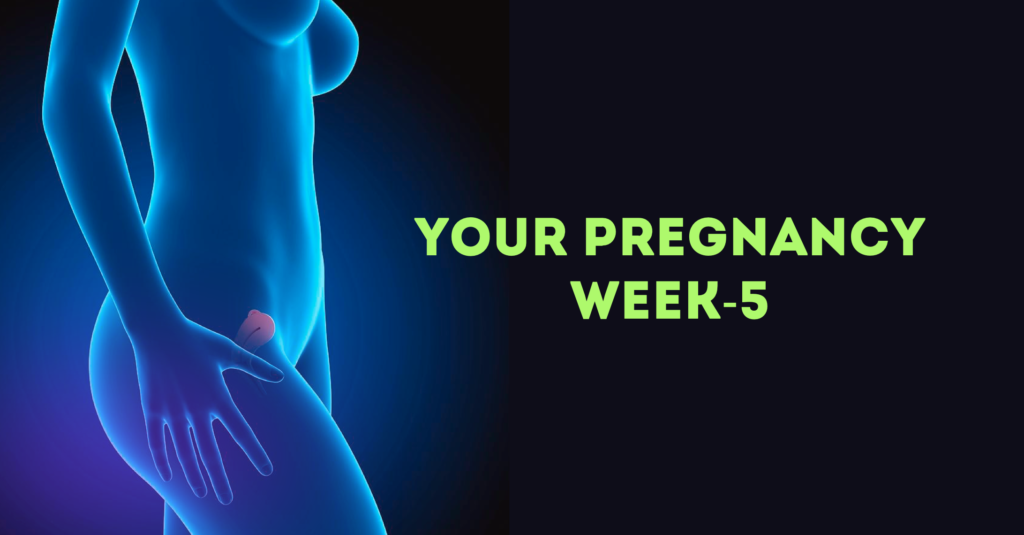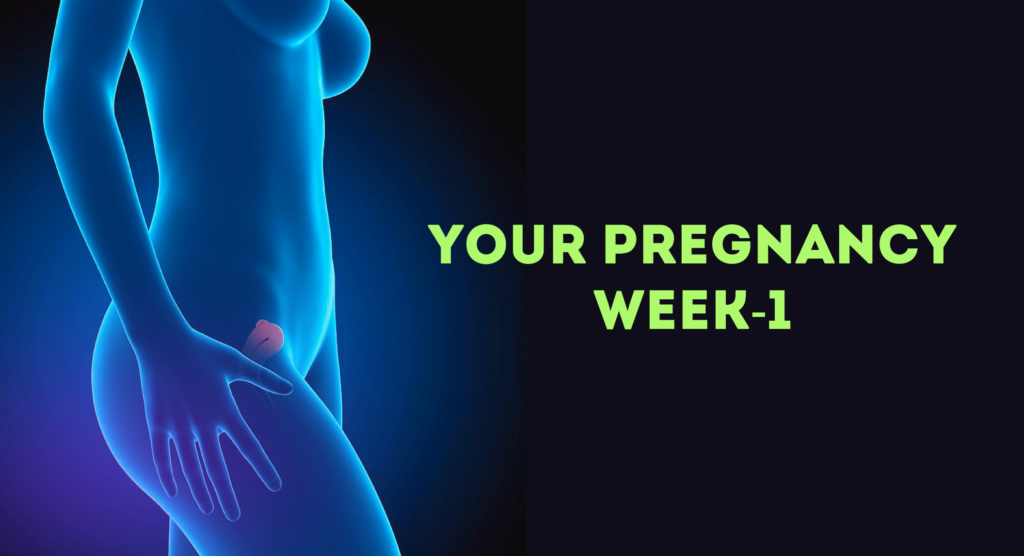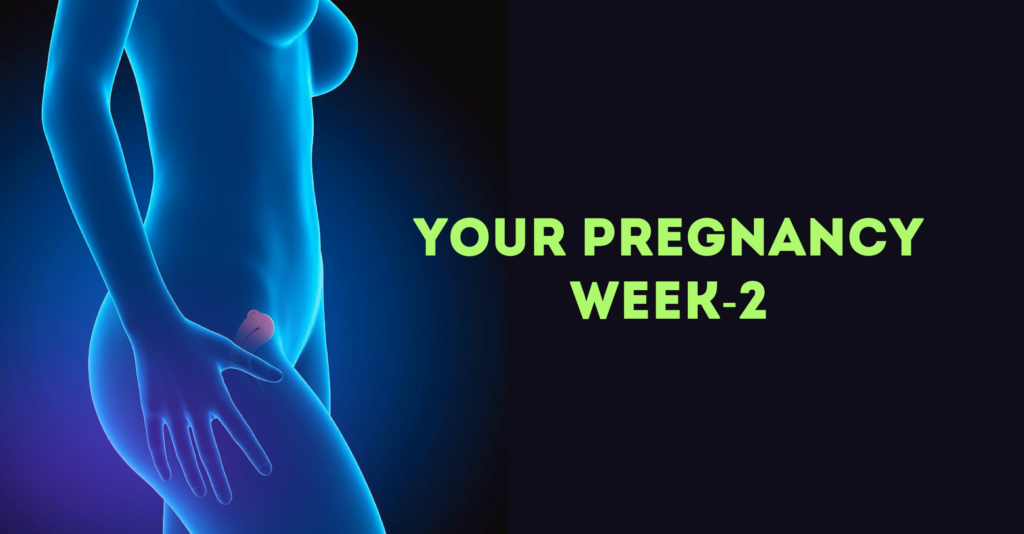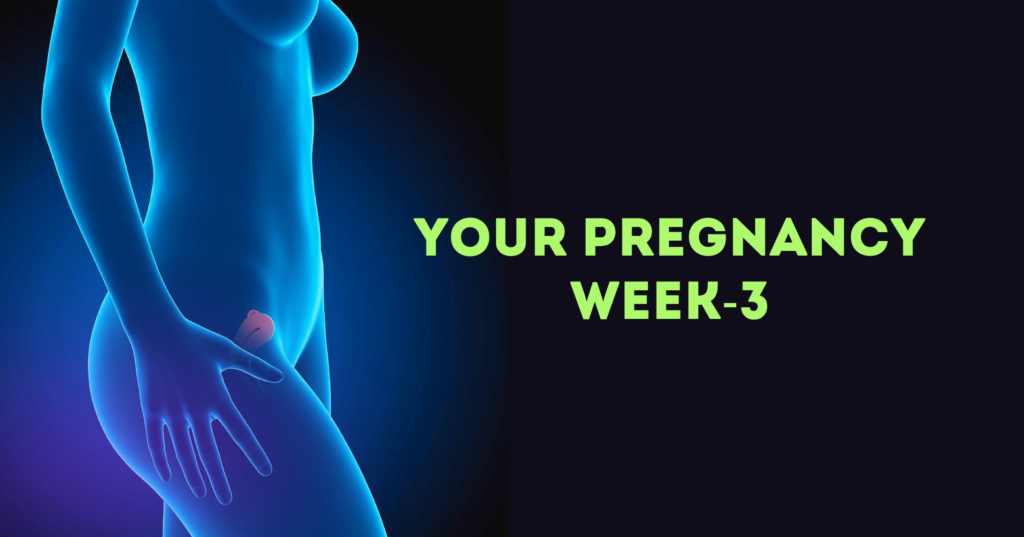Congratulations! At 5 weeks pregnant, you’re at the start of a significant stage in your pregnancy journey. Your baby is rapidly growing and developing, and you may start to feel some early pregnancy symptoms. Let’s dive into the details of what happens during this crucial week.
Key Takeaways at 5 Weeks Pregnant
- Hormone levels are surging, leading to noticeable pregnancy symptoms like fatigue and morning sickness.
- Your baby’s heart starts to beat, and critical systems like the brain and spinal cord are beginning to form.
- It’s an ideal time to schedule your first prenatal appointment and begin taking prenatal vitamins if you haven’t already.
- Many women discover they’re pregnant this week if they haven’t already due to a missed period.
Pregnancy Symptoms During Week 5
At 5 weeks pregnant, your body is undergoing rapid hormonal changes that may lead to the following symptoms:
- Morning Sickness: You might start experiencing nausea and vomiting, which can happen at any time of day.
- Fatigue: High levels of progesterone can make you feel extremely tired, even if you’re getting plenty of rest.
- Breast Tenderness: Your breasts might feel sore, swollen, or heavier than usual as they start preparing for milk production.
- Frequent Urination: Increased blood flow to your kidneys causes you to need to urinate more often.
- Mood Swings: Hormonal fluctuations may cause emotional ups and downs during this early stage.
5 Weeks Pregnant Is How Many Months?
At 5 weeks pregnant, you are in the second month of your pregnancy, specifically about one month and one week along. Pregnancy is generally counted from the first day of your last menstrual period (LMP), so although your baby is only 3 weeks old, you are considered 5 weeks pregnant.
Baby Development at 5 Weeks
Your baby is developing quickly during week 5, with some exciting milestones:
- Size: Your baby is now about the size of a sesame seed or roughly 2mm long.
- Tiny Embryo Development: Deep within your uterus, the embryo is growing rapidly, looking more like a tiny tadpole than a human at this stage. It consists of three primary layers—the ectoderm, mesoderm, and endoderm—which will eventually develop into all the essential organs and tissues of your baby’s body.
- Brain and Nerve Formation: The neural tube, which is the foundation for your baby’s brain, spinal cord, and nerves, begins to form from the embryo’s outer layer, the ectoderm. This layer will also develop into your baby’s skin, hair, nails, sweat glands, and even the enamel on their teeth.
- Heart and Circulatory Development: Your baby’s heart and circulatory system start to take shape within the middle layer of the embryo, known as the mesoderm. This layer will also be responsible for developing your baby’s muscles, bones, cartilage, and the supportive tissue under the skin.
- Lungs, Gut, and Other Organs: The innermost layer, the endoderm, will give rise to vital organs like the lungs, intestines, and parts of the urinary system, as well as the thyroid, liver, and pancreas. Simultaneously, the primitive placenta and umbilical cord are already working to deliver nourishment and oxygen to support your baby’s rapid growth.
- Placenta Growth: The placenta and the umbilical cord are also forming, which will provide nutrients and oxygen to your baby.
Your Pregnant Belly at 5 Weeks
You might not notice much of a change in your belly yet, as most women don’t start to show until later in the first trimester or early in the second trimester. However, some women may experience bloating due to hormonal changes, which can make your pants feel a little tighter.
Pregnancy Checklist at 5 Weeks Pregnant
Here’s what you should do during this exciting week:
- Schedule Your First Prenatal Appointment: If you haven’t already, contact your healthcare provider to set up a visit.
- Start or Continue Taking Prenatal Vitamins: Make sure you’re getting at least 400-600 mcg of folic acid daily to help prevent neural tube defects.
- Eat a Balanced Diet: Focus on nutrient-rich foods that support your baby’s growth and your energy needs.
- Stay Hydrated: Drink plenty of water to help manage bloating and support your increased blood volume.
- Limit Caffeine and Avoid Alcohol: Reducing or eliminating caffeine and alcohol is best for your baby’s development.
To-Do’s for DAD
Partners play a vital role during the pregnancy journey, and here are some things they can do at week 5:
- Learn About Pregnancy Symptoms: Understanding what your partner is going through can help you offer better support.
- Help Create a Healthy Environment: Encourage healthy eating habits and join in on nutritious meals together.
- Be Supportive and Encouraging: Mood swings and fatigue are common, so being patient and understanding is key.
- Plan Together: Start talking about the future, like the kind of birth plan you want or the preparations you need to make at home.
Frequently Asked Questions
1. Is it normal to have cramps at 5 weeks pregnant? Yes, mild cramping at 5 weeks is normal and is often due to the uterus stretching and expanding. However, if the cramps are severe or accompanied by heavy bleeding, it’s best to contact your healthcare provider.
2. Can I take a pregnancy test at 5 weeks? Yes, a home pregnancy test is highly accurate by week 5. If it’s positive, your body is producing enough hCG to confirm the pregnancy.
3. What foods should I avoid at 5 weeks pregnant? Avoid raw or undercooked meats, unpasteurized dairy products, certain types of fish high in mercury, and foods that could pose a risk of foodborne illness.
Conclusion
At 5 weeks pregnant, your body and baby are both undergoing remarkable changes. Understanding the symptoms, focusing on a healthy lifestyle, and staying informed are crucial to a smooth pregnancy journey. Remember to check in with your healthcare provider regularly and embrace this incredible time of growth and anticipation.
Staying proactive, educated, and supportive will help you and your partner navigate the joys and challenges of early pregnancy together.



